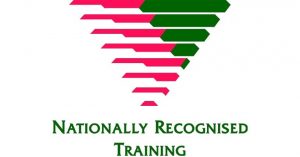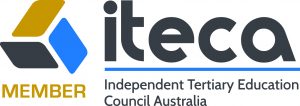CHC30121 Certificate III in Early Childhood Education and Care

Certificate III in Early Childhood Education and Care
The CHC30121 Certificate III in Early Childhood Education and Care is a nationally recognised qualification leading to a career as an Early Childhood Educator working in ACEQA regulated children’s education and care (“childcare”) services in Australia. Early childhood educators work in long day care centres, family day care, pre-schools or kindergartens.
This course will help you to pursue a rewarding career as:
- an Early childhood educator
- an Outside School Hours Care (OSHC) Assistant
- a Playgroup Supervisor
- a Family Day Care Worker
- a Nanny
- a Children’s Recreation Assistant
These roles typically support children’s wellbeing, and development in the context of an approved learning framework. Educators use a range of well-developed skills and knowledge using discretion and judgment when carrying out their work in the context of established policies and procedures. They may work independently or under the guidance of others.
To achieve this qualification, the individual must have completed a total of least 160 hours of work in a regulated children’s education and care service in Australia as detailed in the Assessment Requirements of units of competency.
Once you have been accepted into your course, you will receive an email roughly one week prior to course commencement. This will include student log in details and information about your Zoom classroom or campus-based venue.
Early Childhood Education Traineeships
Click here to find out how you can obtain the Diploma of Early Childhood Education and Care through a traineeship at your workplace.


MSA Training and Professional Development adheres to the Code of ethics for ACPET members
RTO Number: 21526
Timetable options – click each blue box to see full class details
Each blue box below represents a different intake. Choose the one that suits you best – click each box to see the full timetable.
If you are viewing this page on your phone, please scroll sideways for more blue boxes/timetables < >
Course fees
Fees are inclusive of all materials.
All enrolments are subject to our Refund and Transfer Policy, please click here for the relevant details.
Depending on your individual circumstances, this course may be tax deductible.
Course fees must be made prior to course commencement. Up to $1000 will be taken as a deposit for upfront payments, with the balance to be paid via a payment plan or Request for Invoice/purchase order (eg. If your employer is paying).
No tuition fee will be charged to eligible Skills First students who self-identify as being of Aboriginal or Torres Strait Islander descent. Students may still be charged a Materials Fee.
Concession Eligibility
To be eligible for the concession price for short courses and Certificate & Diploma (Non-Funded only), you must be one of the following:
Monash and other students
Monash Staff
Monash Alumni
Health Care Card and Pension Card holders
The Nationally Recognised Certificate III in Early Childhood Education and Care qualification is delivered in the classroom over 37 sessions running two days per week for approximately 20 weeks from 9am – 4.30pm. The timetable and the order of units is subject to change.
You will also need to complete 160 hours of work placement as part of this course.
Total classroom hours: 259 total hours
Estimated study hours: 8-10 hours per week
HLTAID012 Provide First Aid in an education and care setting
HLTWHS001 Participate in workplace health and safety
CHCPRT001 Identify and respond to children and young people at risk
CHCECE030 Support inclusion and diversity
CHCECE031 Support children’s health, safety and wellbeing
CHCECE032 Nurture babies and toddlers
CHCECE033 Develop positive and respectful relationships with children
CHCECE034 Use an approved learning framework to guide practice
CHCECE035 Support the holistic learning and development of children
CHCECE036 Provide experiences to support children’s play and learning
CHCECE037 Support children to connect with the natural environment
CHCECE038 Observe children to inform practice
CHCECE054 Promote understanding of Aboriginal and/or Torres Strait Islander cultures
CHCECE055 Meet legal and ethical obligations in children’s education and care
CHCECE056 Work effectively in children’s education and care
SITXFSA005 Use hygienic practices for food safety
CHCDIV001 Work with Diverse People
Knowledge
Students will require a sound understanding of how to navigate computers along with software (Word, PowerPoint), opening and closing documents, saving documents, formatting documents, typing and using the internet for searching and emails. Students who are not confident using computers are welcome to enrol in one of the short computer courses provided by MSA Training and Professional Development.
Students are required to fill out a Language Literacy and Numeracy assessment during the enrolment process. For those with difficulty filling out the LLN form MSA Training and Professional Development offers a beginners’ ESL and individual ESL classes. During enrolment students will also undergo a pre-training review which will help make sure this course is right for you and identify any additional support you may need.
Attendance
Students who are unable to attend all sessions of their chosen timetable may need to make-up those sessions in other timetables to be able to successfully complete their qualification.
Group-work is required for this qualification and students will be assessed on their level of participation.
Students are required to attend a minimum of 85% of their classes. If you are unable to meet the minimum attendance, you may be required to take make-up sessions in a different timetable.
Assessment methods and requirements
Assessment will include trainers conducting observations while students are on placement, written knowledge questions, and classroom activities, role plays and projects.
Assessments are to be submitted to your trainer within 4 weeks of the unit/cluster.
Technology
Please ensure you have a laptop with Microsoft Word, or equivalent, for campus-based classes.
A computer with Microsoft Word, or equivalent, sufficient internet connection, camera and mic for zoom classes, before enrolling into this qualification.
First Aid unit
The First Aid unit must be completed face to face, this unit is not able to be delivered via Zoom.
Options available
- Payment by employer (invoice)
- Skills First Government Funding
- Busy At Work Funding
- Payment plan, details below:
Online payments are processed through our secure payment gateway partner, EzyPay. For payment plans, a Payment Dishonour Fee of $8.90 will be charged for each dishonoured payment.
View Payment Plan Terms & Conditions.
We do not accept cash payments.
To view the 2024 Indicative Government Subsidised Student Tuition Fees for all our courses please click here.
Enrolment in a government funded place may impact on your ability to access future government funding.
Funding criteria for 2024 have changed. Holding higher level qualifications is no longer a barrier to being able to access this funding.
To be eligible for funding for this course in 2024 you will need to:
- be an Australian citizen; a holder of a permanent visa; or a New Zealand citizen
- be physically present in Victoria or a border region*
- have not already commenced two Skills First subsidised qualifications in 2024
- not already be studying two other Skills First subsidised qualifications at the same time
- be aged 17 years or older. (If you are aged under 17 and wish to enrol for this course, please speak to us about the requirements for an ‘exemption from schooling’ which will enable you to access this funding).
Enrolment in a government funded place may impact on your ability to access future government funding.
*Certain postcodes only. Check with our team to see if your suburb is eligible.
Busy At Work Funding
Skills Checkpoint for Older Workers is an Australian Government-funded initiative to enable mature-aged Australian workers and recently unemployed mature-aged Australians to remain in, or re-enter the workforce.
Eligibility Criteria
To qualify you must be:
- aged 40 years or over,
- an Australian citizen or permanent resident,
- employed and at risk of entering the income support system, or recently unemployed (within 12 months), and,
- not registered for assistance through an Australian Government employment services program.
If you are a mature age worker who is at risk of losing your job or are unemployed (for less than 12 months), you may qualify for the Skills Checkpoint program.
Skills Checkpoint provides personalised advice and guidance on up-skilling for a current job, transitioning into new roles within a current industry or pathways to new careers, including a co-funding amount for relevant education and training (up to a maximum of $2,200).
Entry requirements
You will be required to complete a Language Literacy and Numeracy Assessment. Please see student handbook for more information on the LL&N Assessment.
Sufficient written and spoken English language skills, basic word processing skills.
You are required to have a Working with Children’s Check before enrolment into this course.
Students must be 16 years of age or older to complete the course.
Students will be required to complete a minimum of 160 hours of work placement in a licenced and registered early childhood service. Practical placement will commence in week 3 of the course structure. You will not be able to complete Placement unless you have a Working with Children’s check.
Students will need to independently search and apply for placement with the support of their trainer.
Students may be required to be vaccinated against COVID-19 to do placement within an early childhood setting. Please discuss with your chosen Centre to get the most up to date information on vaccination requirements.
Credit Transfers (CT)
Credit Transfer is a process used to recognise qualifications and Statements of Attainment issued by any other RTO or TAFE. If you have successfully completed any of the units in the course in which you are enrolling, or their equivalent, you may be eligible for credit transfer. Where credit transfer is granted you will be considered to have already successfully completed the unit(s), and will not have to participate in training or assessment activities for that unit(s). In determining where credit transfer may be granted, MSA Training and Professional Development must be confident of the currency of the applicant’s knowledge. In fields where practice/technology is changing rapidly, credit transfer may not be granted where knowledge of unit(s) has dated.
MSA Training and Professional Development will recognise AQF qualifications and Statements of Attainment issued by any RTO.
To apply for a credit transfer, please complete the Application for credit transfer form and email it to msa-monashtraining@monash.edu
Recognition of Prior Learning (RPL)
RPL is an assessment process that gives an individual (you) an opportunity to gain formal recognition—i.e. a qualification or statement of attainment— for knowledge and skills you have attained through informal learning, work and life experiences. If you think you may be able to gain RPL for any of the units for this qualification, please speak to us to request and RPL Information Handout.
Please click here to see available support services at MSA Training and Professional Development
Students who have completed the Certificate III in Early Childhood Education and Care may enrol into the Diploma of Early Childhood Education and Care.
For students who are looking to further their career beyond completing the Diploma level qualification with us we are working closely with the Faculty of Education at Monash University to provide a pathway into the dual-sector Bachelor of Education (Honours) in Early Years and Primary Education for eligible students.
Entry into the Bachelor of Education (Honours) will require a graded transcript. Applicants will also be subject to additional entry requirements.
For more information on this pathway please contact or office our the Faculty of Education at Monash.
Enrolling into this course (classroom based only) will entitle you to a temporary public transport tertiary concession card.
Benefit
PTV Tertiary Student ID holders receive a 50 per cent discount on travel.
Eligibility
To obtain a PTV Tertiary Student ID you must be:
- attending a normal course of full-time study at an Institution registered with the Victorian Department of Education and Training as shown in the PTV Register of Approved Courses in Tertiary Institutions; and
- a citizen or permanent resident of Australia (Special Category Visa holders excluded); student with refugee status; student studying as part of an approved overseas exchange program; or student holding an Australia Awards Scholarship.
Unfortunately, you’re not eligible for a PTV Tertiary Student ID if you are:
- enrolled in a Masters, Doctorate, or other postgraduate course
- an overseas full-fee paying student (primary, secondary or tertiary)
- enrolled in a tertiary course which is less than 10 weeks duration
- enrolled in an apprenticeship course
- enrolled in an off-campus course
- not studying full time
To assess the type of concession, select ‘Monash Student Association’ in the Institution drop down box, this will bring up a list of MTPD courses.
Applying for a PTV Tertiary ID
For more information go to https://www.ptv.vic.gov.au/tickets/myki/concessions-and-free-travel/children-and-students/tertiary-students/
Belinda Noonan
Belinda has over 28 years in both the Child care and Vocational Education Sector. She has been a Centre Director, Classroom trainer, and delivered Early Childhood training via the Workplace, Distance and Traineeships . Belinda has also worked with Centre Directors to design and deliver Professional Development training to the staff.
Belinda has excellent communication and organisational skills which are applied to assist her students with their studies.
_

Martha Pavlidis
Martha is a creative and enthusiastic teacher, she is sensitive to her students needs, whether in class with adult students or children in her care. During her time with MSATPD, she has taught Certificate III and Diploma in Early Childhood Education and Care, plus developed several Educator Professional Development webinars. Students who have been in class with Martha have a high success rate of finding employment either shortly after completion, or through their placement while studying. Martha is dedicated to her students and loves to see them succeed.
_
Nicola Paul
My name is Nicola and I am one of the Early childhood trainers at MSATPD. I have been in the early childhood industry for 17 years and am very passionate about children’s education and their wellbeing. I teach both Certificate III and Diploma in Early Childhood Education and Care, along with the Certificate III in School Based Education Support and love having fun with my students, encouraging them to be the best educators they can be and igniting their passion for working with children. I have a high success rate of most of my student’s finding jobs whilst on placement and after finishing the course. I am dedicated to seeing each of my students succeed and have dedicated myself to be available to them when they need help with their studies.
This qualification is available to be taught at your workplace for groups of 8 or more employees. Find out more here.
